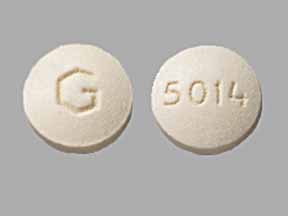
Aldactazide Coupons & Savings Card – Discount Prices from $16.08
Brand for: Spironolactone-hydrochlorothiazide
My prescription
Edit
25-25MG, Spironolactone-hydrochlorothiazide (30 Tablets)
Select pharmacy

CVS
$21.03
COUPON PRICE
Walgreens
$16.08
COUPON PRICE
Walmart
$22.71
COUPON PRICE
Albertsons
$30.55
COUPON PRICEAldactazide savings card
Show this card to your pharmacist
Walgreens
$16.08
BIN
ID
PCN
GRP
015995
LHKRA544337
GDC
DR33
Powered by
More prescriptions for kidney disease
More prescriptions for kidney disease
Price history for Aldactazide (brand) & Spironolactone-hydrochlorothiazide (generic)
30 Tablets, 25-25MG
Average retail price for Aldactazide
Average retail price for Spironolactone-hydrochlorothiazide
Average SaveHealth price for Spironolactone-hydrochlorothiazide
Our price history data is based on aggregated prescription data collected from participating pharmacies in America. Our prescription data updates daily to reflect the latest price changes. If you notice a missing data point, it means there wasn't sufficient data available to generate a monetary value for that date.
Over the last 12 months, the average discount price of Aldactazide is $19.94 using the SaveHealth savings card. That's an average savings of 80.49% on Aldactazide with our discount card.
*Retail prices are based on pharmacy claims data, and may not be accurate when we don't have enough claims.
Aldactazide (Spironolactone-hydrochlorothiazide) dosage forms
Dosage Quantity Price from Per unit 25-25MG 30 Tablets $21.03 $0.70 25-25MG 45 Tablets $22.40 $0.50 25-25MG 60 Tablets $23.76 $0.40 25-25MG 90 Tablets $34.49 $0.38 25-25MG 180 Tablets $42.68 $0.24
| Dosage | Quantity | Price from | Per unit |
|---|---|---|---|
| 25-25MG | 30 Tablets | $21.03 | $0.70 |
| 25-25MG | 45 Tablets | $22.40 | $0.50 |
| 25-25MG | 60 Tablets | $23.76 | $0.40 |
| 25-25MG | 90 Tablets | $34.49 | $0.38 |
| 25-25MG | 180 Tablets | $42.68 | $0.24 |
What is aldactazide?
Aldactazide is a combination medication that contains two active ingredients: spironolactone and hydrochlorothiazide. It is used to treat conditions such as high blood pressure and fluid retention (edema) by promoting the elimination of excess fluid and reducing blood pressure. Spironolactone is a potassium-sparing diuretic, while hydrochlorothiazide is a thiazide diuretic.
Why is aldactazide hazardous?
Aldactazide can be considered hazardous due to its potential side effects and interactions. It contains spironolactone and hydrochlorothiazide, which can lead to electrolyte imbalances, dehydration, and kidney function impairment. It may also cause hyperkalemia, especially in patients with renal impairment or those taking potassium supplements. Additionally, it can interact with other medications, leading to adverse effects. Patients should use it under medical supervision to manage these risks effectively.
How much does Aldactazide cost?
The cost of Aldactazide can vary depending on factors such as the pharmacy, location, insurance coverage, and dosage. It is recommended to check with local pharmacies or online resources for the most accurate and up-to-date pricing information. Additionally, consulting with a healthcare provider or insurance company may provide insights into potential coverage or discounts.
What are the ingredients in Aldactazide?
Aldactazide contains two active ingredients: spironolactone and hydrochlorothiazide. Spironolactone is a potassium-sparing diuretic, while hydrochlorothiazide is a thiazide diuretic. These ingredients work together to help reduce fluid retention and manage blood pressure.
What class of drug is Aldactazide?
Aldactazide is a combination medication that belongs to the class of diuretics. It contains two active ingredients: spironolactone, which is a potassium-sparing diuretic, and hydrochlorothiazide, which is a thiazide diuretic.
